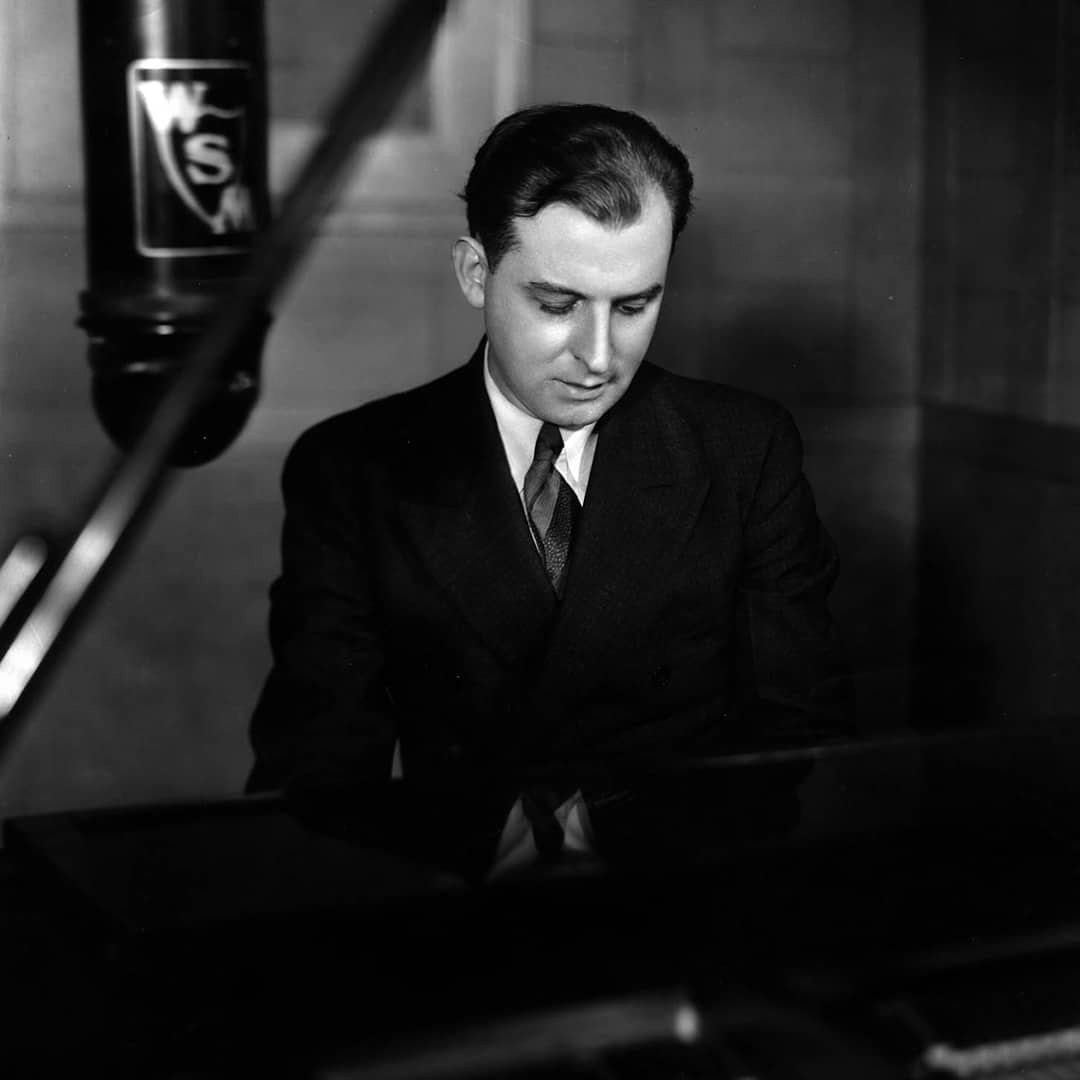Chet
Atkins

-
Inducted1973
-
Born
June 20, 1924
-
Died
June 30, 2001
-
Birthplace
Luttrell, Tennessee
No other country instrumentalist has achieved the same renown and respect as Chet Atkins. His immense influence on country, rock, and jazz musicians has lasted more than half a century, and many of the hit records he produced during his days at RCA are now classics.
Radio’s Immense Influence
Chester Burton Atkins grew up in the hills near the tiny, remote East Tennessee town of Luttrell. His father, James Atkins, was an itinerant music teacher who had previously been married, and his mother, Ida Atkins, sang and played piano. After the Atkinses divorced, Ida remarried, in 1932, and Chester began to learn guitar and fiddle, often playing with his brother and sister and their stepfather, Willie Strevel.
A 1936 asthma attack forced Atkins to relocate to the improved climate at his father’s Georgia farm, where one night in the late 1930s he first heard Merle Travis playing guitar on WLW in Cincinnati. Travis’s thumb-and-finger picking style fascinated Atkins, who created his own thumb-and-two-finger variation.
After attending high school in Georgia, Atkins landed a job at WNOX in Knoxville, fiddling for the team of singer Bill Carlisle and comic Archie Campbell. WNOX executive Lowell Blanchard heard Atkins’s guitar playing and began featuring him on the station’s popular weekday multi-artist country show, Mid-Day Merry-Go-Round, and Atkins broadened his repertoire though listening sessions in the station’s music library. He briefly joined WLW in Cincinnati in 1945, then worked with Johnnie & Jack in Raleigh, North Carolina, in early 1946, before moving to Chicago, where Red Foley, having left the WLS National Barn Dance to host the Grand Ole Opry’s NBC segment, The Prince Albert Show, hired Atkins and took him to Nashville. There, Atkins made his first solo recording, “Guitar Blues,” for the local record label Bullet.
Moving on to KWTO in Springfield, Missouri, Atkins received his nickname, “Chet,” from station official Si Siman. Other officials there felt Atkins’s style was too polished for “hillbilly” music and eventually fired him, but meanwhile, Siman tried to get record companies interested in Atkins.
Songs
00:00 / 00:00
00:00 / 00:00
00:00 / 00:00
Making the “A-Team”
RCA Victor’s Steve Sholes signed Atkins as a singer and guitarist in 1947. As record labels stockpiled recordings in anticipation of a Musician’s Union strike, Atkins impressed Sholes with his studio skills as a player who could lead other musicians in creating commercial arrangements.
Around 1948, Atkins returned to WNOX, working first with Homer & Jethro, then joining Maybelle and the Carter Sisters as lead guitarist. They subsequently worked at KWTO before relocating to Nashville to join the Grand Ole Opry in 1950. Atkins also appeared on the Opry as a solo act.
Back in Nashville, with help from music publisher and MGM Records producer Fred Rose, Atkins became one of Nashville’s early “A-Team” of session musicians, recording with everyone from Wade Ray to Hank Williams to Webb Pierce. His first chart hit, a cover of the pop hit “Mister Sandman,” came in 1955, followed by a hit guitar duet with Hank Snow, “Silver Bell.”
Only after rock & roll set back country record sales did Chet Atkins’s production skills come into their own.
Videos
Chet Atkins “Both Sides Now” The Tonight Show
Chet Atkins “Yakety Axe” National Life Grand Ole Opry
Photos
-
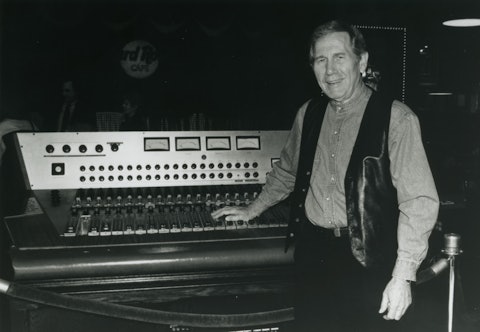
Chet Atkins stands by a control board from RCA Studio A, located at the Hard Rock Café in Nashville, 1982. Photo by Beth Gwinn.
-
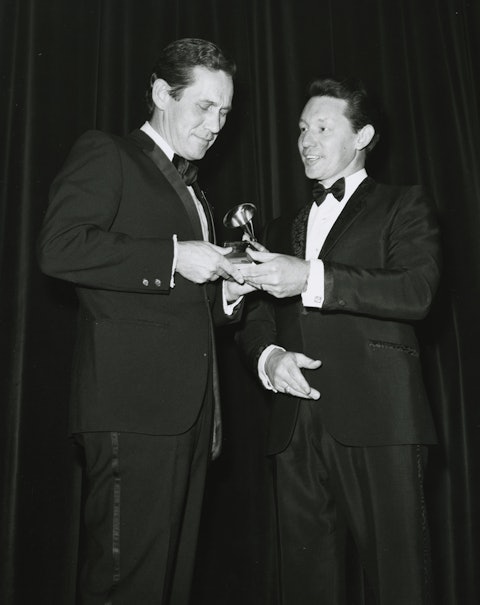
Chet Atkins accepts the award for Best Instrumental Performance at the 10th annual Grammy Awards, 1968. Walden S. Fabry Studios.
-
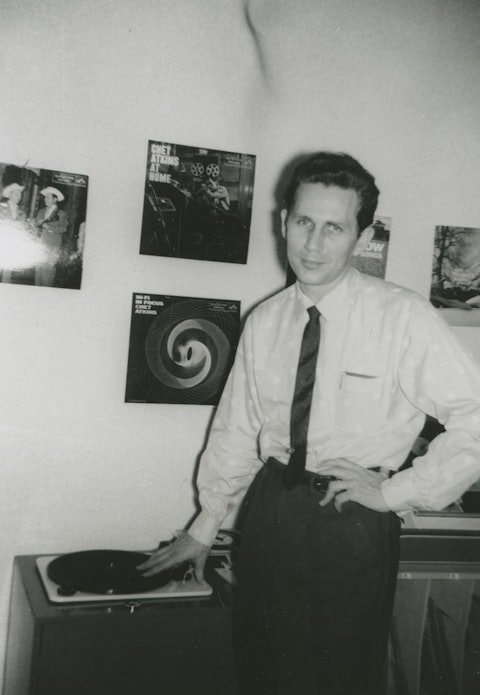
Chet Atkins, 1958.
-
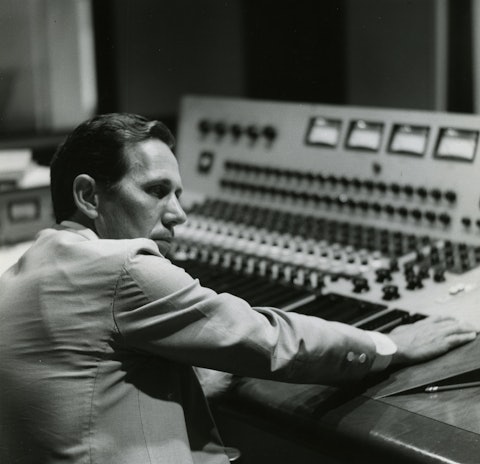
Chet Atkins in the RCA Studio A control room, 1963.
-
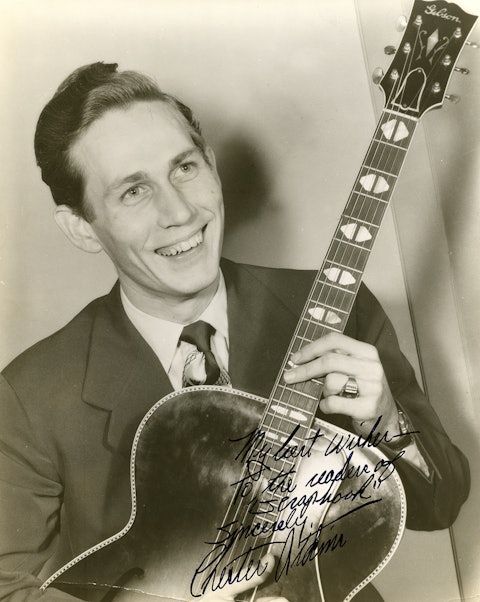
Chet Atkins, 1942.
-
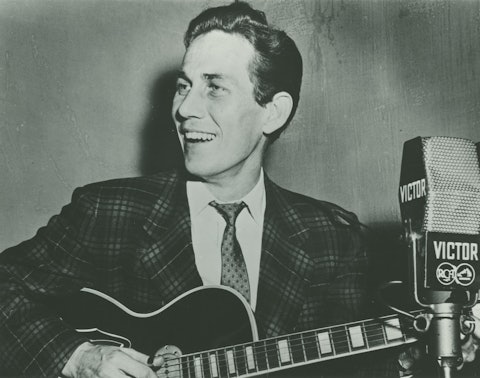
Chet Atkins, 1950s.
-
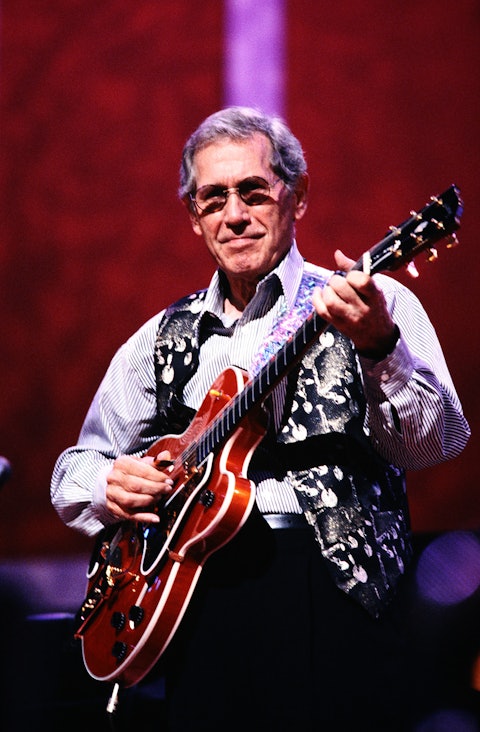
Chet Atkins, 1996. Photo by Raeanne Rubenstein.
-
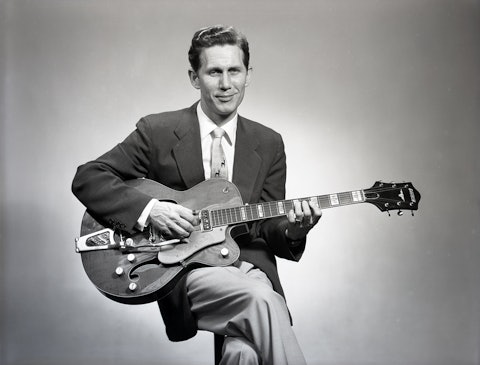
Chet Atkins, 1955. Walden S. Fabry Studios.
-
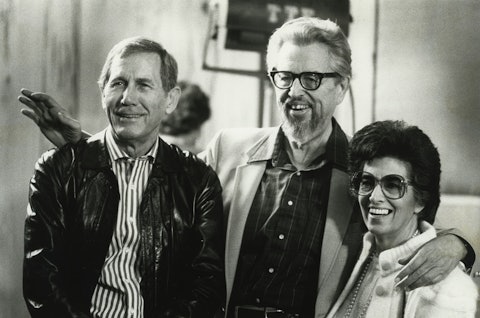
From left: Chet Atkins, Boudleaux Bryant, and Felice Bryant at Tennessee Homecoming in Nashville, 1985.
-
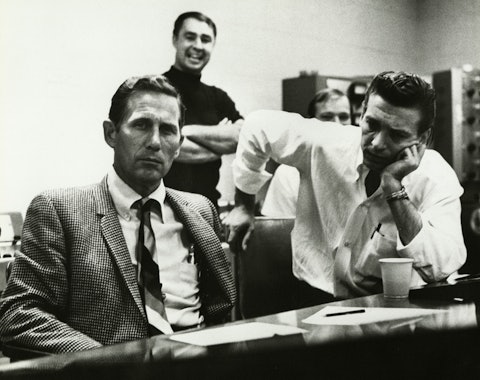
Chet Atkins and Waylon Jennings, 1960s.
Success at RCA
Atkins’s relationship with RCA Victor’s Sholes evolved throughout the 1950s into that of trusted protégé. Initially, Atkins organized sessions, and if Sholes, who was based in New York, couldn’t come to Nashville, Atkins produced the records himself, but in 1955, Sholes put Atkins in charge of RCA’s Nashville studios, first at a facility shared with the Methodist Radio, Television, and Film Commission and later at an RCA-controlled studio that would become known as RCA Studio B. Atkins eventually worked his way up to the role of RCA vice president, responsible for Nashville operations.
Only after rock & roll set back country record sales did Atkins’s production skills come into their own. Intent on increasing sales by making country records appeal to pop and country audiences, he—along with Owen Bradley at Decca, Don Law at Columbia, and Ken Nelson at Capitol—began to produce singers backed by neutral rhythm sections and replace steel guitars and fiddles with vocal choruses, a style immortalized as the Nashville Sound. Atkins transformed hard-country RCA artists Jim Reeves and Don Gibson by producing hits for both that crossed over into the pop market. Among the many acts he produced successfully were Eddy Arnold, Skeeter Davis, Bobby Bare, and Floyd Cramer.
In 1965, Atkins took a major step forward by signing Charley Pride, who was Black, to RCA. That same year, Atkins enjoyed his own biggest hit single with “Yakety Axe,” an adaptation of Nashville studio musician Boots Randolph’s hit “Yakety Sax.”
Atkins produced a constant stream of solo RCA albums during these years as well. As he hired additional producers at RCA, he cut back his own production work to focus on recording and made albums with other fine guitarists: Hank Snow, Jerry Reed, Merle Travis, and Les Paul. Atkins relinquished his RCA executive role in 1982 and left RCA to record for Columbia the following year. Frequent collaborations with younger players, such as British rock guitarist Mark Knopfler, reflected Atkins’s desire to remain contemporary.
From 1967 to 1988, Atkins won the Country Music Association’s Instrumentalist of the Year honor eleven times. In 1993, he received a Lifetime Achievement Award from the National Academy of Recording Arts and Sciences, placing him among such musical greats as Louis Armstrong, Ray Charles, Leonard Bernstein, and Paul McCartney, and in 1997, he won his fifteenth Grammy, for his 1996 recording of “Jam Man.”
Atkins was also diagnosed with brain cancer in 1997. He died of the disease in 2001.
— Rich Kienzle
Adapted from the Country Music Hall of Fame® and Museum’s Encyclopedia of Country Music, published by Oxford University Press



